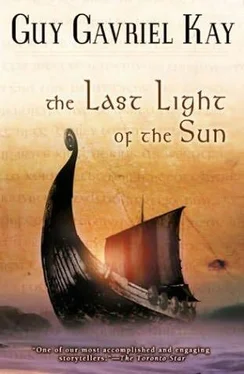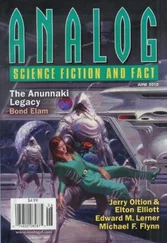Guy Kay - The Last Light of the Sun
Здесь есть возможность читать онлайн «Guy Kay - The Last Light of the Sun» — ознакомительный отрывок электронной книги совершенно бесплатно, а после прочтения отрывка купить полную версию. В некоторых случаях можно слушать аудио, скачать через торрент в формате fb2 и присутствует краткое содержание. Год выпуска: 2003, ISBN: 2003, Издательство: ROC, Жанр: Фэнтези, на английском языке. Описание произведения, (предисловие) а так же отзывы посетителей доступны на портале библиотеки ЛибКат.
- Название:The Last Light of the Sun
- Автор:
- Издательство:ROC
- Жанр:
- Год:2003
- ISBN:0-451-45965-2
- Рейтинг книги:3 / 5. Голосов: 1
-
Избранное:Добавить в избранное
- Отзывы:
-
Ваша оценка:
- 60
- 1
- 2
- 3
- 4
- 5
The Last Light of the Sun: краткое содержание, описание и аннотация
Предлагаем к чтению аннотацию, описание, краткое содержание или предисловие (зависит от того, что написал сам автор книги «The Last Light of the Sun»). Если вы не нашли необходимую информацию о книге — напишите в комментариях, мы постараемся отыскать её.
The Last Light of the Sun — читать онлайн ознакомительный отрывок
Ниже представлен текст книги, разбитый по страницам. Система сохранения места последней прочитанной страницы, позволяет с удобством читать онлайн бесплатно книгу «The Last Light of the Sun», без необходимости каждый раз заново искать на чём Вы остановились. Поставьте закладку, и сможете в любой момент перейти на страницу, на которой закончили чтение.
Интервал:
Закладка:
She looked at them again. "I was right," she said. "He'll be coming here, with my brother. They'll be taking the coastal road. They are on the way to Cadyr now, to speak with his father." She smiled gently at the two of them. "We've agreed not to do this too much, before the wedding, so don't worry. He says to tell Ceinion he's making music again."
There wasn't a great deal one could do about this, though prayer was clearly indicated. Kendra was diligent about attendance at chapel, morning and evening. The marriage did make sense. There had been some brief discussion, the king remembered, about Athelbert and Brynn ap Hywll's daughter. Well, that wouldn't need to be continued, now. You didn't marry two children to achieve the same result.
Ceinion of Llywerth offered his own two wedding gifts to the king. The first was his long-sought promise to spend part of each year with Aeldred at his court. The second was quite different. It emerged after a conversation between the high cleric of the Cyngael and the extremely devout queen of the Anglcyn. In the wake of this frank and illuminating exchange, and after two all-night vigils in her chapel, Queen Elswith arrived at her husband's bedchamber one night and was admitted.
The queen placidly informed her royal spouse that—upon reflection and religious counsel—his soul was not so very gravely in danger as to require her to withdraw to a sanctuary immediately after Judit was married, after all. She was content to wait until Kendra, in turn, was wed to this prince in the west. Perhaps in late spring? Aeldred and Osbert, in her view, would be incapable of properly dealing with this second celebration without guidance. Further, it now struck the queen as reasonable to spend some of her time at court even after she retired to the sanctuary. These matters could be addressed in a… balanced fashion, as the teachings of faith suggested for all things. On the subject of balance, the king's earthly state was, certainly, part of her charge.
His diet, for example, with the winter feasting season approaching (Judit's wedding in Rheden ahead of them), was excessive. He was gaining weight, at risk of gout, and worse. He would need her with him, at intervals, to observe and assess his needs.
The king, who had not suffered another of his fevers since a certain conversation with Ceinion on the ride back from chasing the Erlings to the coast (and would not endure one again, ever), happily proposed she begin such assessing right where they were. The queen declared the suggestion indecent at their age but allowed herself to be overmastered, in this.
You're taking a long time.
You know why. I had to go to my father first, couldn't rush away. I'm almost with you. Three more days. There are emissaries with us. We'll present the marriage proposal to your father. I'll ask Ceinion to help. I think he will.
Doesn't matter. My father's going to consent.
How do you know? This is a very—
I spoke with him.
And he just said yes?
Right now I think he'll say yes to anything I ask of him. A small silence in the shared channel of two minds. So will I, you know.
Oh, good.
She'd done her first harvest-time sacrifice, two lambs and a kid. Anrid had added the goat to the ceremony, naming it as Fulla's offering, mostly to be seen to be doing things the old volur had not done. Changes, setting her own imprint upon rituals, as a seal marked a letter. She'd worn the accursed snake about her neck. It was growing heavier. It had crossed her mind that if the ship from the south came back in spring, it would be prudent to arrange for another serpent. Or perhaps they'd have one on board, perhaps arrangements had already been made.
Frigga, when consulted, thought this might be so.
The harvest turned out to be a good one, and the winter was mild on Rabady. The new governor and volur were both toasted in the taverns, and the women's compound saw its share of after-harvest gifts. Anrid claimed only a dark blue cloak for herself, let the others divide the rest—they needed to be kept happy. And a little bit afraid.
The serpent helped with that. The wound on her leg had become a small pair of scars. She let the others see them now and again, as if by chance. Serpents were a power of earth, and Anrid had been given some of that power.
It was mild enough through winter that some of the younger men took their boats across to Vinmark for the adventure of it. In a hard winter the straits might freeze, though not safely so, and Rabady could be entirely cut off. This year they did learn things, although in winter there wasn't much to know. A blood feud in Halek, six men dead after a woman had been stolen. It appeared the woman had consented, so she was killed as well when reclaimed by her family. People were too close to each other when the snow came. In spring the roads and sea opened again and pent-up violence could be sent away. It had always been like that. They were shaped by the cold season; preparing for winter, needing it to end, preparing again.
One day, with spring not yet arrived, a small boat was rowed across to the isle. Three mariners aboard, heavily armed, spears and round shields. They came ashore with a chest and a key, spoke courteously enough to the men sent down to meet them. They were looking for a woman. From the town they were sent through the walls and across the ditch to trudge snow-clad fields to the women's compound. A half-dozen boys, glad of the diversion, escorted them.
The chest was for Frigga. It revealed, when opened in Anrid's chamber (only the two of them there for the turning of the key), silver enough to buy any property on the isle, with a good deal left over. There was a note.
Anrid was the one who could read.
Frigga's son Bern sent his respects to his mother and hoped she remained in health. He was alive himself, and well. He was sorry to have to tell her that her husband (her first husband) had died, in Cyngael lands, at summer's end. His passing was honourable, he had saved other men with his death. He had been given rites and burning there, done properly. The silver was to make a new beginning for her. In a hard way to explain, the note said, it was really from Thorkell. Bern would send word again when he could, but would probably not risk coming back to Rabady.
Anrid had expected the other woman to weep. She did not—or not when Anrid was near. The chest and silver were hidden (there were places to hide things here). Frigga had already made her new beginning. Her son could not have known that.
She wasn't at all certain she wished to leave the compound and the women, go back to a house in or near the town, and she wouldn't go to her daughters in Vinmark, even with wealth of her own. That wasn't a life, growing old in a strange place.
It was a great deal of money, you couldn't just leave it in the ground. She'd think on it, she told Anrid. Anrid had memorized the note (a quick mind) before they put it back in the chest.
Probably not, was what he had said.
She took thought, and invited the governor to visit her.
Another new thing, Sturla's coming here, but the two of them were at ease with each other now. She'd gone into town to speak with him as well, formally garbed, surrounded by (always) several of the women.
Iord, the old volur, had believed in the mystery that came with being unseen, removed. Anrid (and Frigga, when they talked) thought power also came from people knowing you were there, bearing you in mind. She always had the serpent when she went to the town, or met with Ulfarson at the compound, as now. He'd deny it, of course, but he was afraid of her, which was useful.
They discussed adding buildings to the compound when the last snow melted and the men could work again. This had been mentioned before. Anrid wanted room for more women, and a brewhouse. She had thoughts of a place for childbirth. People gave generously at such times (if the child was a boy, and lived). It would be good to become known as the place to come when a birth drew near. The governor would want a share, but that, too, she'd anticipated.
Читать дальшеИнтервал:
Закладка:
Похожие книги на «The Last Light of the Sun»
Представляем Вашему вниманию похожие книги на «The Last Light of the Sun» списком для выбора. Мы отобрали схожую по названию и смыслу литературу в надежде предоставить читателям больше вариантов отыскать новые, интересные, ещё непрочитанные произведения.
Обсуждение, отзывы о книге «The Last Light of the Sun» и просто собственные мнения читателей. Оставьте ваши комментарии, напишите, что Вы думаете о произведении, его смысле или главных героях. Укажите что конкретно понравилось, а что нет, и почему Вы так считаете.












